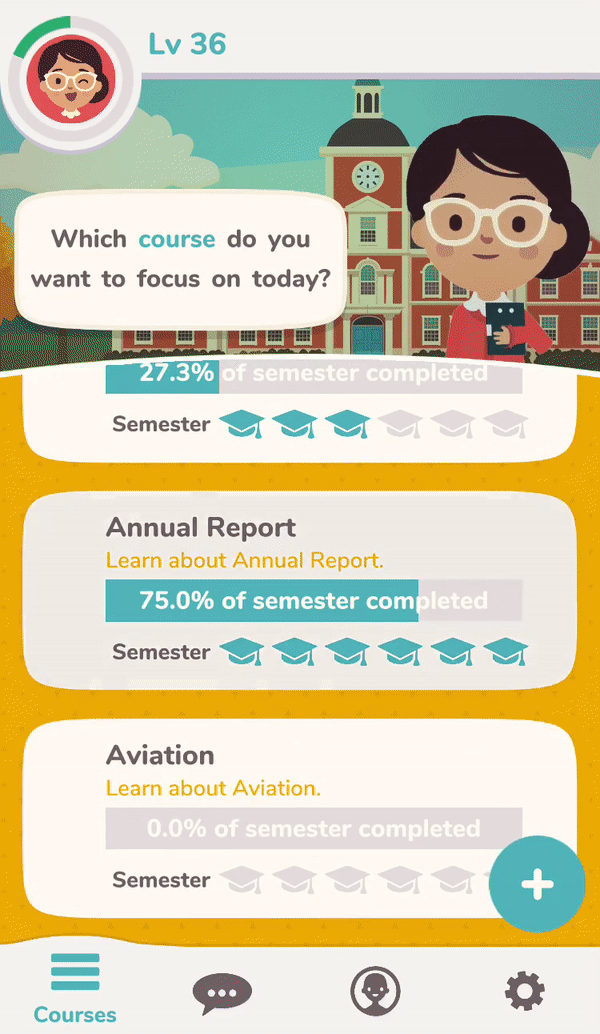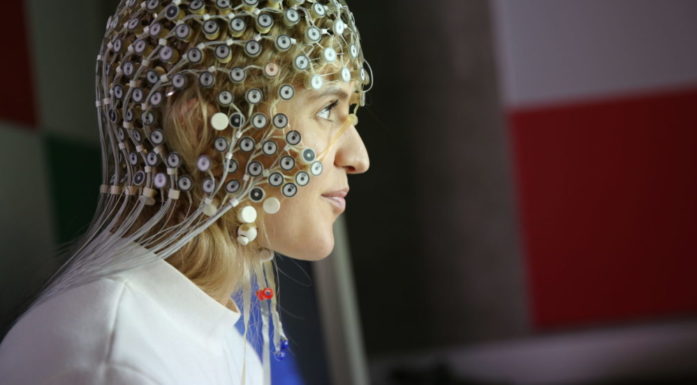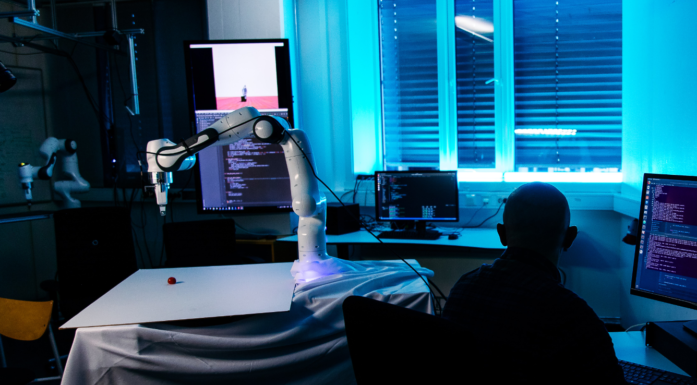A language app for working life
Speaking Norwegian is important for many Norwegian jobs, but conventional language classes may not prepare people with the kinds of words and expressions they need. A new app now provides training in specialized expressions.
When Matthew Smalley of Leicester, England came to Norway five years ago, he quickly discovered that he wasn’t learning vocabulary relevant to his work in his regular language courses.
“I remember spending a lot of time and money on Norwegian classes. But I wasn’t learning the words I needed in my new job at Norsk Tipping,” Smalley says.
Now he is the commercial leader of the entrepreneurial company Capeesh, which offers game-based digital language training that is tailored to specific jobs and industries.
First came Sounds Good
One year ago, Sounds Good, a company that originated at the Norwegian University of Science and Technology (NTNU) launched an app called Norwegian pronunciation, which included Norwegian language exercises specially adapted to people’s mother tongue.
“This app can adapt listening and pronunciation training to 77 native languages,” says Marie Jacobsen Lauvås, the general manager of Sounds Good, which has now become Capeesh.
Half a year before the launch of Norwegian Pronunciation, the company Sounds Good teamed up with the Oslo company Box of Words, founded by Matthew Smalley and Ole Andreas Haley. They all realized that they could stand to benefit greatly by collaborating with each other.
Sounds Good provided important research within customized listening and pronunciation training, while Box of Words offered tailor-made terminology training. Combining the two companies meant that the entrepreneurs together could deliver tailor-made language training at a very high level.
You may also like: Improve your Norwegian with tailor-made language app
Merged companies
The two companies merged and renamed the new language company Capeesh. Together, they developed the app with the same name. The Capeesh app is based on language research from NTNU, gaming technology and machine intelligence.
“It’s difficult to find a team with as unique a composition of expertise as what we have now. We’re able to achieve things that haven’t been done before,” says Lauvås, CEO of Capeesh.
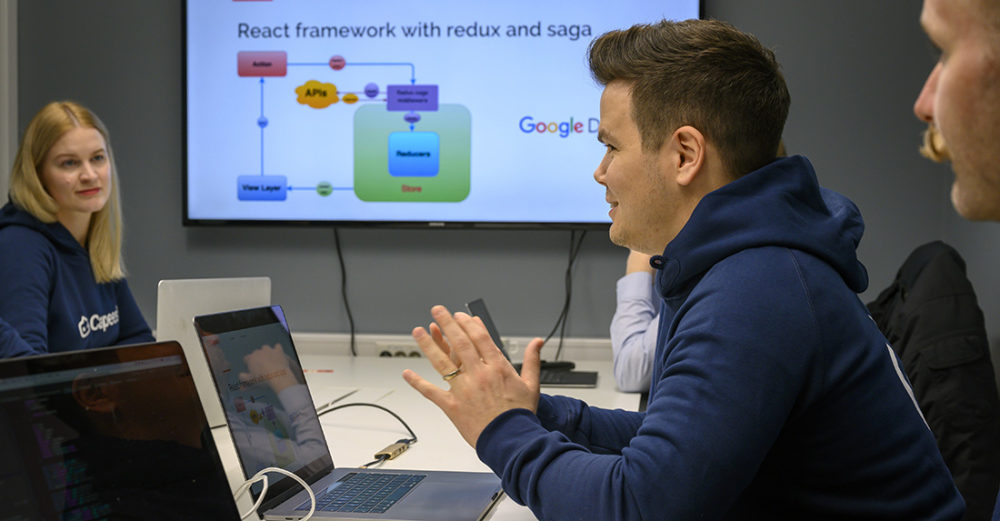
There are a lot of hours behind the development of the new app. L-R: Marie Jacobsen Lauvås, Ole Andreas Haley. Photo: Synlig.no
Capeesh can customize courses in vocabulary and pronunciation for anyone, regardless of their industry.
The machine intelligence in the app can analyse personnel manuals and presentations from the industry, and thus provide language training in very specialized areas, such as “thermal debugging” in the aquaculture industry.
“The app gives any employees in industry or business an opportunity to practise the precise terminology and pronunciation they need. We adapt the vocabulary training to any niche using machine intelligence,” Lauvås says.
The new app was recently launched on the App Store and Google Play.
Games should create a desire to learn
The Capeesh app has adopted gaming technology to make language learning even more fun.
“My approach is to engage users and create an experience that they want to come back to. The gaming industry is good at creating engaging experiences with fun ways to repeat and reinforce concepts,” says chief product officer Ole Andreas Haley.
This is what the app looks like. Click on it for a small animation.
As they built the app, the developers behind Capeesh were thinking, “What would Nintendo for language learning look like?” Exercising language skills requires a lot of repetition of exercises.
One way to create engaging learning is to include variety, challenges and progression as part of the game’s elements.Oh, and by the way, the music for the app was written by Nintendo composer David Wise.
Strong international interest
Initially, Capeesh is aiming to get NTNU and other Norwegian institutions and businesses to use a pilot of the new app. But the company’s ambitions are global.
“We’re finding strong international interest in our product. The feedback from several global language training institutions is that this is unique and has enormous potential. So far no one else is able to customize language learning at the level we’re doing,” says Lauvås.
“We’re working to establish distribution partners and already have users abroad. So far, the new app has mastered Norwegian, English, Spanish, French and German,” she adds.
Building on 10 years of NTNU research
NTNU researchers Olaf Husby and his colleague Jacques Koreman built the foundation for the Norwegian pronunciation app. They mapped the language sounds and sound combinations that distinguish one language from another for 500 languages. This mapping enabled them to create a list of sounds that are difficult for anyone wanting to learn Norwegian.
“We figured out that if we could create a database that acts as a filter – where we turn on the mother tongue and the variant of Norwegian a user wants to learn – then we could filter out the unnecessary sounds,” Husby told Gemini.no a year ago.
With Capeesh, Husby hopes that the game elements will have a positive language learning effect.
“We’re hoping that the pleasure and interest in games can be transferred to language training. Traditionally, a lot of language teaching has been linked to memorizing. We know that we learn through repetition. By using game elements, we can reframe rote learning. Instead of memorizing conjugations and grammar, users remember patterns and sequences,” Husby says.
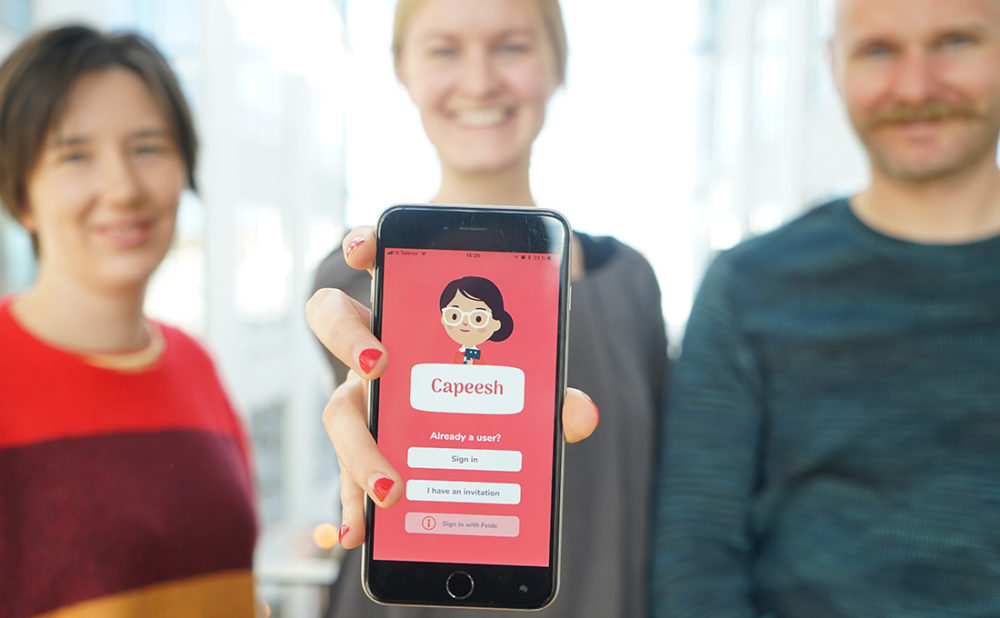
The Capeesh team: technical linguist Inna Tolskaya, General Manager Marie Jacobsen Lauvås and CTO Morten Tvenning. Photo: Mona Sprenger
The Norwegian pronunciation app focuses mainly on – you guessed it – pronunciation. You’re scored on the correct pronunciation of a word, whereas in Capeesh, the focus is more on vocabulary,” says Husby.
A Chinese physician wants to practise hearing the difference between the sounds in “lice – rice,” for example, would use the Norwegian pronunciation app, but to practise learning terminology like “vein,” “intravenous” and “scalpel” the doctor would use Capeesh.
Husby stresses that teaching words in another language has a lot to do with form and structure.
“From a scientific point of view, it’s really interesting to see how the linguistic forms and content need to be dealt with in a game, so that users can develop language skills,” he says.
“If we succeed at this, lots of people will benefit,” says Husby.

